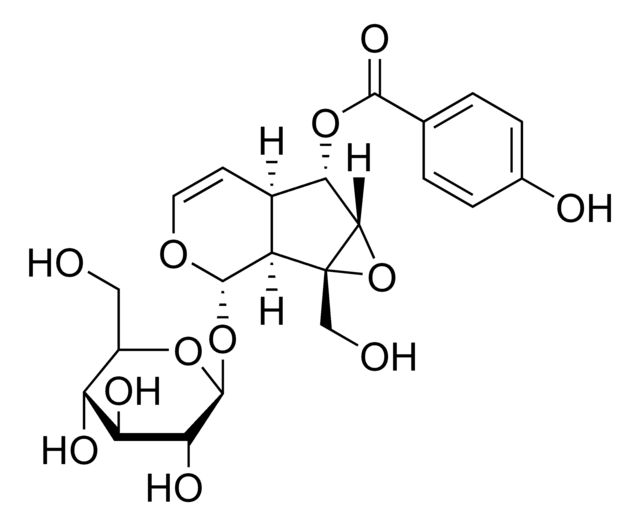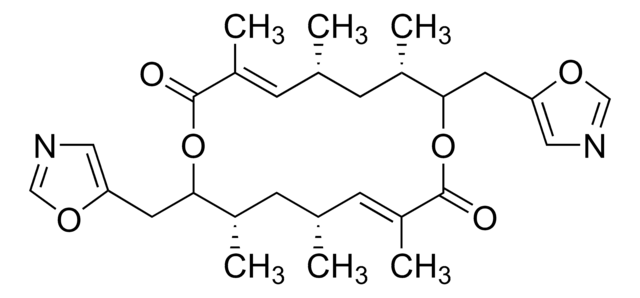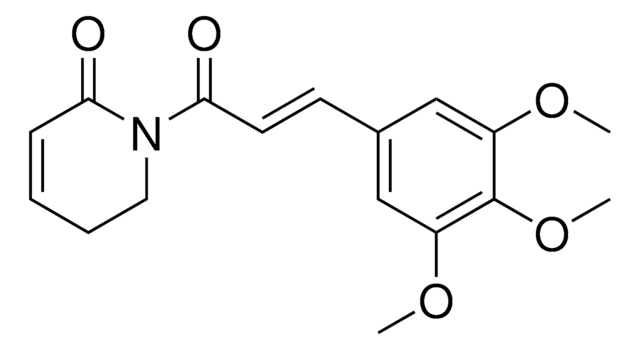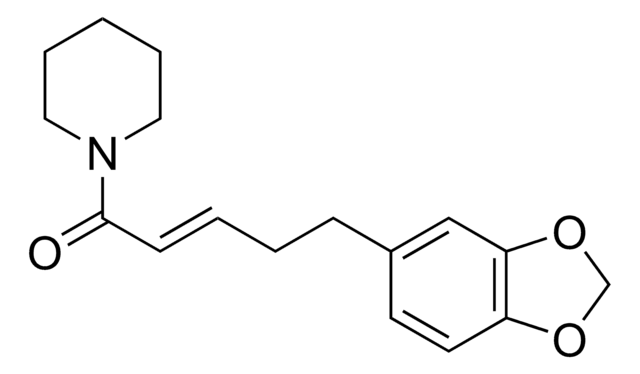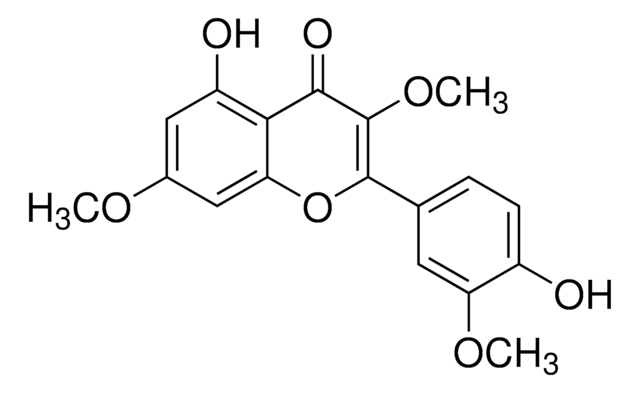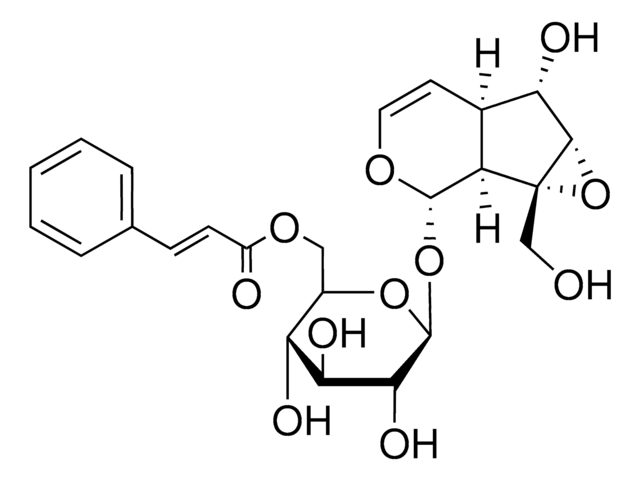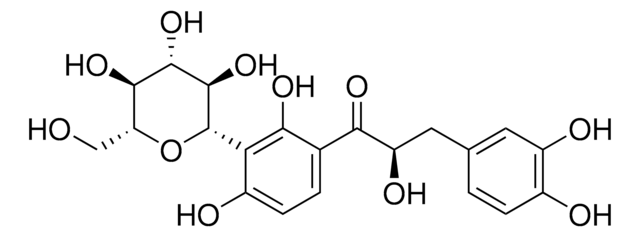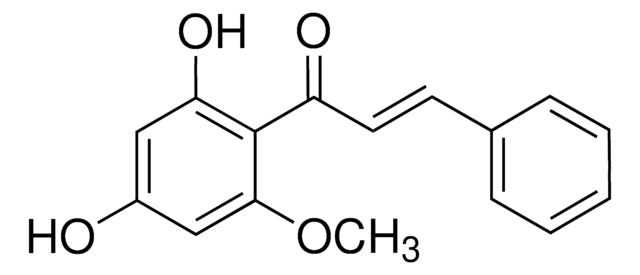Kluczowe dokumenty
SMB01055
Colladin
≥90% (LC/MS-ELSD)
Synonim(y):
Coladin
About This Item
Polecane produkty
pochodzenie biologiczne
plant
Próba
≥90% (LC/MS-ELSD)
Formularz
solid
masa cząsteczkowa
424.53
rozpuszczalność
water: slightly soluble
Zastosowanie
metabolomics
vitamins, nutraceuticals, and natural products
temp. przechowywania
−20°C
ciąg SMILES
O1c2c(ccc(c2)OC[C@H]3[C@]4([C@@H](C([C@@H](CC4)OC(=O)C)(C)C)CCC3=C)C)C=CC1=O
InChI
1S/C26H32O5/c1-16-6-10-22-25(3,4)23(30-17(2)27)12-13-26(22,5)20(16)15-29-19-9-7-18-8-11-24(28)31-21(18)14-19/h7-9,11,14,20,22-23H,1,6,10,12-13,15H2,2-5H3/t20-,22-,23-,26+/m1/s1
Klucz InChI
MNGYOFNIAOWXIT-DNRBGDKYSA-N
Opis ogólny
Zastosowanie
Działania biochem./fizjol.
Cechy i korzyści
- Wysokiej jakości związek odpowiedni do wielu zastosowań badawczych
- Kompatybilny z technikami HPLC i spektrometrii masowej
Inne uwagi
Kod klasy składowania
11 - Combustible Solids
Klasa zagrożenia wodnego (WGK)
WGK 3
Temperatura zapłonu (°F)
Not applicable
Temperatura zapłonu (°C)
Not applicable
Wybierz jedną z najnowszych wersji:
Certyfikaty analizy (CoA)
It looks like we've run into a problem, but you can still download Certificates of Analysis from our Dokumenty section.
Proszę o kontakt, jeśli potrzebna jest pomoc Obsługa Klienta
Masz już ten produkt?
Dokumenty związane z niedawno zakupionymi produktami zostały zamieszczone w Bibliotece dokumentów.
Nasz zespół naukowców ma doświadczenie we wszystkich obszarach badań, w tym w naukach przyrodniczych, materiałoznawstwie, syntezie chemicznej, chromatografii, analityce i wielu innych dziedzinach.
Skontaktuj się z zespołem ds. pomocy technicznej